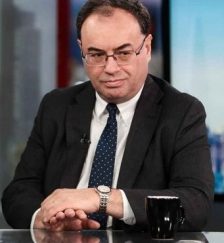 The United Nations Convention on International Settlement Agreements resulting from Mediation, also known as the “Singapore Convention on Mediation” applies to international settlement agreements resulting from mediation (“settlement agreement”). It was adopted in December 2018 and establishes a harmonised legal framework for the right to invoke settlement agreements as well as for their enforcement. It is an instrument for the facilitation of international trade and the promotion of mediation as an alternative and effective method of resolving trade disputes. Since it is a binding international instrument, the Convention is expected to bring certainty and stability to the international framework on mediation, thereby contributing to the Sustainable Development Goals (SDG), mainly the SDG 16. As of 7 August 2019, the Convention is open for signature by States and regional economic integration organisations (or the “Parties”). On the first day alone 46 countries, including the United States, China and Singapore signed the Convention, which concentrates on enhancing the enforceability of settlement agreements that arise out of mediation. The Convention attempts to be mediation’s equivalent of the New York Convention on the Recognition and Enforcement of Foreign Arbitral Awards 1958, and many hopes and aspirations are pinned to it as regards the widening of mediation as a mechanism for dispute resolution.
The United Nations Convention on International Settlement Agreements resulting from Mediation, also known as the “Singapore Convention on Mediation” applies to international settlement agreements resulting from mediation (“settlement agreement”). It was adopted in December 2018 and establishes a harmonised legal framework for the right to invoke settlement agreements as well as for their enforcement. It is an instrument for the facilitation of international trade and the promotion of mediation as an alternative and effective method of resolving trade disputes. Since it is a binding international instrument, the Convention is expected to bring certainty and stability to the international framework on mediation, thereby contributing to the Sustainable Development Goals (SDG), mainly the SDG 16. As of 7 August 2019, the Convention is open for signature by States and regional economic integration organisations (or the “Parties”). On the first day alone 46 countries, including the United States, China and Singapore signed the Convention, which concentrates on enhancing the enforceability of settlement agreements that arise out of mediation. The Convention attempts to be mediation’s equivalent of the New York Convention on the Recognition and Enforcement of Foreign Arbitral Awards 1958, and many hopes and aspirations are pinned to it as regards the widening of mediation as a mechanism for dispute resolution.
The mediation process allows parties to try settle a dispute using the assistance of a neutral third person. The third party neutral person acts as the mediator. The mediator does not possess any authority to impose a decision on the Parties and can only to help them to agree a mutually-acceptable resolution. The Convention, under Article 2(3), defines mediation broadly, in other words it is as a way “to reach amicable settlement of their dispute with the assistance of a third person or persons (‘the mediator’) lacking the authority to impose a solution upon the parties”. So long as the settlement is captured by this definition, the Convention applies irrespective of whether the process of settlement is called a “mediation”. Similarly, no requirement exists for the mediation be administered by a mediation institution or conducted by an accredited mediator. The drafting of the provision is deliberately wide and intends to increase Convention’s appeal by avoiding a high level of prescriptiveness and maintaining the flexibility which makes mediation attractive. The Convention only applies to settlements arising from commercial mediation. Read the rest of this entry »
















